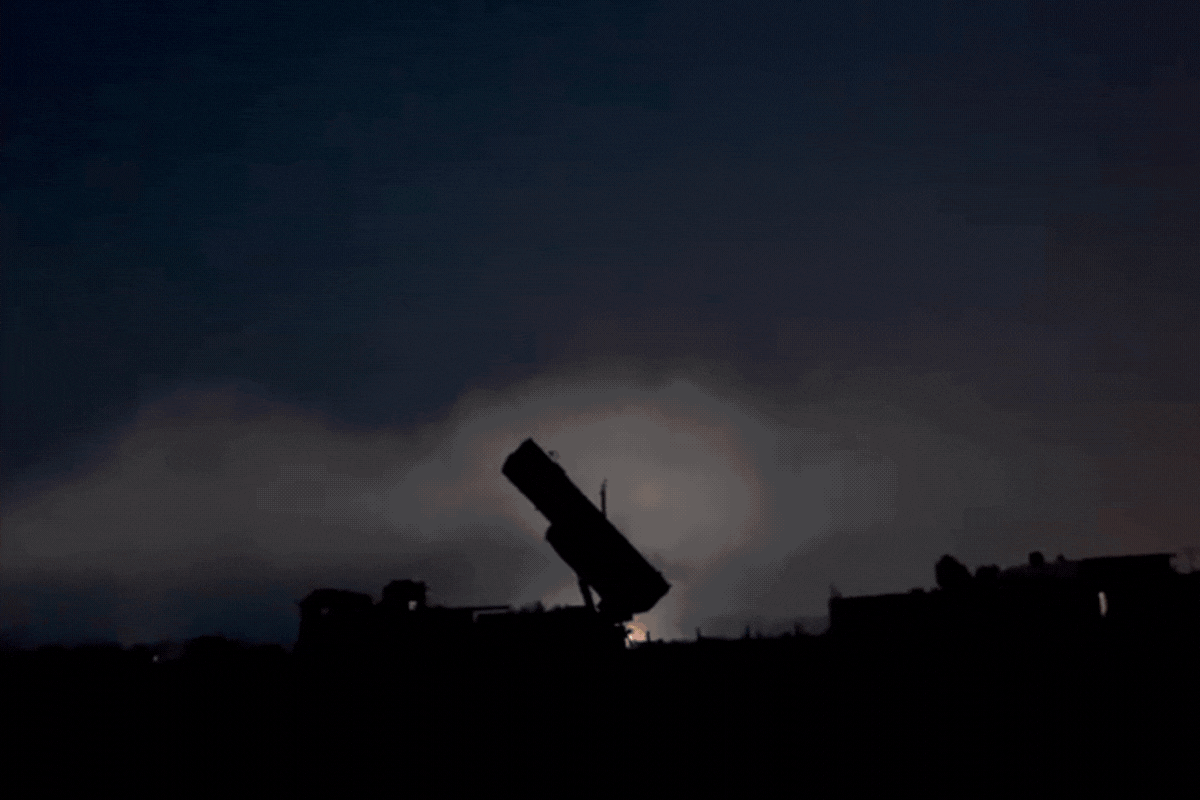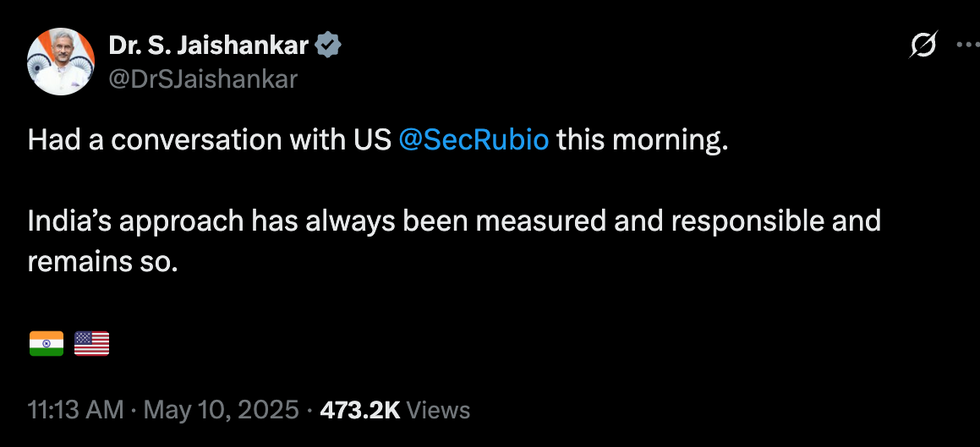
Following U.S. Secretary of State Marco Rubio's calls to both New Delhi and Islamabad, India and Pakistan have responded with carefully worded signals that leave the door open for de-escalation—though neither side has backed down militarily.
India’s position: ‘Measured and responsible’
Indian Foreign Minister S. Jaishankar told Secretary Rubio that India’s approach has “always been measured and responsible—and remains so.”
The Indian military said it was willing to de-escalate if it is reciprocated by Pakistan.

"Indian armed forces reiterate their commitment to non-escalation, provided it is reciprocated by the Pakistan military," Indian Wing Commander Vyomika Singh told a press conference.
“India neutralized many dangers, but Pakistan tried to infiltrate via Air at more than 26 places, and they damaged our equipment and personnel at air force bases in Udhampur, Bhuj, Pathankot, Bathinda,” Col. Sofiya Qureshi, also speaking at the press conference said.
Pakistan’s position: 'We'll stop if India stops'
Pakistan's security sources confirmed that contact was established between Pakistan and India’s Directors General of Military Operations (DGMOs) via hotline.
Reuters quoted Pakistan Foreign Minister Ishaq Dar as saying Islamabad is willing to pause further action if India does the same: "If India stops here, then we will consider to stop here."
Pakistan minister denies nuclear body meeting
Pakistan's Defense Minister Khawaja Asif said on Saturday that no meeting of the top military and civil body overseeing the country's nuclear arsenal had been scheduled following a military operation against India earlier in the day.
Pakistan's military said earlier that the prime minister had called on the authority to meet. The information minister did not respond immediately to a request for comment.
The worst fighting between the nuclear-armed rivals since 1999 has killed dozens of people on both sides and led to repeated calls for de-escalation from the United States and the G7 group of rich countries.
"This thing that you have spoken about (nuclear option) is present, but let's not talk about it - we should treat it as a very distant possibility, we shouldn't even discuss it in the immediate context," Asif told ARY TV.
"Before we get to that point, I think temperatures will come down. No meeting has happened of the National Command Authority, nor is any such meeting scheduled."
Rubio’s outreach and Washington’s role
The U.S. State Department confirmed that Secretary Rubio had spoken with both Indian and Pakistani leaders:
He urged direct communication between the two sides to prevent further escalation.
Rubio offered U.S. support in facilitating "productive discussions to avert future disputes."
Pakistan extends airspace closure by another 24 hours
Pakistan has announced that its airspace will remain closed until 12 noon on May 11.
All airports and commercial flights will remain suspended until then. Foreign airlines flying into Pakistan will also be restricted from using the country’s airspace.
The Pakistan Airports Authority has issued a NOTAM (Notice to Airmen) regarding the closure.
Pakistan launches counteroffensive
Pakistan on Saturday launched a large-scale military counter-offensive, codenamed Operation Bunyān-un-Marsūs, after India fired air-to-ground missiles at multiple Pakistani airbases in what Islamabad described as a blatant act of aggression, state media reported early Saturday.










Comments
See what people are discussing